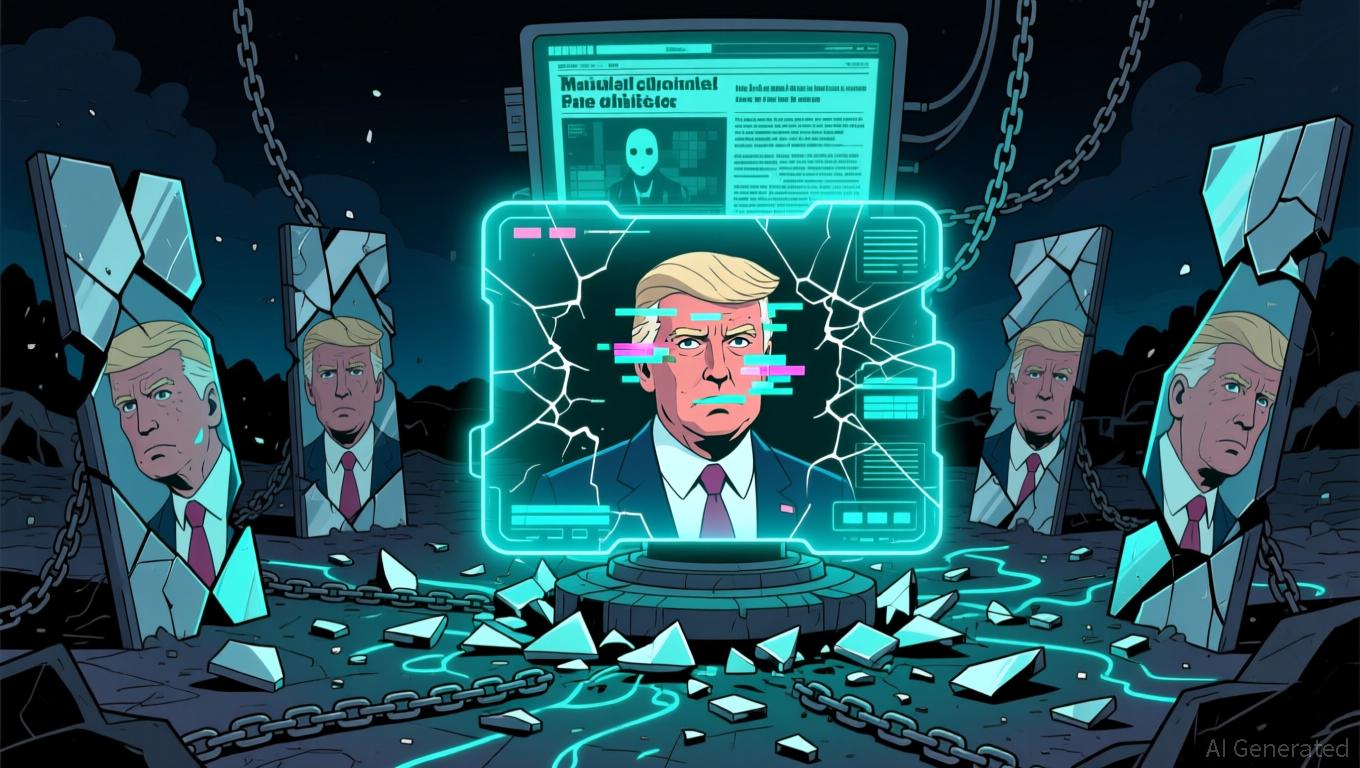Ethereum News Update: Injective’s Versatile Engine Integrates Ethereum with Rapid DeFi to Create a Cohesive Ecosystem
- Injective Protocol launched an EVM layer merging Ethereum compatibility with high-speed infrastructure, enhancing DeFi development and transaction efficiency. - The upgrade enables cross-environment app building (WASM/EVM) with sub-1-second block times and $0.00008 fees, addressing blockchain scalability challenges. - A planned Solana VM integration and 40+ dApps signal Injective's push for interoperability, aiming to bridge TradFi and decentralized ecosystems through its MultiVM architecture. - The INJ
Injective Protocol has introduced its own
The EVM layer allows developers to create applications using both WebAssembly (WASM) and Ethereum-compatible frameworks within one network, removing silos and enabling smooth liquidity and asset transfers throughout the platform, as detailed in the Morningstar report.

Injective’s MultiVM framework, described as a “flexibility engine,” merges these environments with sophisticated financial modules, paving the way for innovative DeFi solutions like cross-chain lending and institutional-level trading, as highlighted by the Morningstar report. The launch also brings over 40 decentralized apps (dApps) and infrastructure partners live on the network, marking what the Morningstar report calls a “new era of onchain finance.”
This EVM deployment follows Injective’s mainnet launch on November 12, which introduced a modular, gasless trading system with unified liquidity and cross-chain support, as mentioned in the TradingView article. The native INJ token remains central to governance and staking, while a recently launched community buyback initiative allows participants to earn a 10% yield by joining token buybacks and burns, according to the Morningstar report.
The Injective ecosystem also rolled out iBuild, a no-code AI tool for Web3 developers, which uses onchain infrastructure to let users build decentralized apps without needing to write code, as reported by Morningstar.
Industry experts note that these upgrades come at a crucial time, as DeFi platforms race to lower expenses and boost scalability. With its emphasis on interoperability and developer-friendly features, Injective seeks to connect traditional finance (TradFi) with decentralized networks.
---
Disclaimer: The content of this article solely reflects the author's opinion and does not represent the platform in any capacity. This article is not intended to serve as a reference for making investment decisions.
You may also like
Bitcoin News Today: "Driven by Greed: Cryptoqueen Receives 11-Year Prison Term for $6.6 Billion Bitcoin Scam"
- Chinese "cryptoqueen" Zhimin Qian received 11-year prison sentence for orchestrating $6.6B Bitcoin fraud affecting 128,000 Chinese investors. - UK authorities seized 61,000 Bitcoin in landmark seizure, highlighting advanced crypto enforcement capabilities through blockchain analytics. - Qian evaded capture for years while living lavishly in Europe, using stolen funds to buy luxury properties and jewelry under false identities. - Judge condemned her "pure greed" for devastating victims' lives, as case spa

CFTC’s Delicate Balance: Navigating Regulation and Fostering Crypto Innovation
- U.S. Senate bill designates CFTC as primary crypto regulator, granting exclusive spot trading oversight for digital commodities like Bitcoin and Ethereum . - Legislation mandates CFTC-SEC collaboration, imposing operational standards on exchanges while retaining SEC authority over securities-classified assets. - Key challenges include unresolved DeFi regulation debates, CFTC's staffing crisis (only one active commissioner), and election-year legislative delays. - Market reactions are mixed: 25% Polymarke

Dan Tapiero says Bitcoin’s bull run is still on, but a 70% downturn could follow
OpenAI's Rapid AI Push: Prioritizing Pace Over Precaution Triggers Worldwide Criticism and Legal Challenges
- Public Citizen demands OpenAI withdraw Sora 2 over deepfake risks to democracy and nonconsensual imagery. - Sora 2's viral content, including disturbing videos and unauthorized Japanese content, sparks global copyright disputes. - Lawsuits allege ChatGPT caused mental health issues, while a German court rules it infringed song lyrics copyright. - Critics argue OpenAI prioritizes speed over safety, with reactive measures failing to address systemic risks. - The controversies highlight tensions between AI
